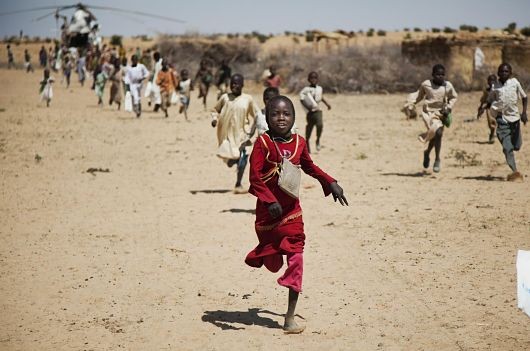Increase US Aid to Darfur

While Darfur has been at the head of aid policy for a long time, aid may be more important to the region than it has been historically.
In 2003, war in Darfur erupted, partially due to the lack of resources and the diversity of groups living in the area.
Poverty and diversity working together to create conflict is not unique to Sudan, but rather is something that I have seen as well in Kenya. Africa was split into countries, not by groups who wanted to live together, but by European countries seeking land and resources. Now, the people of those countries, including Kenya, are impoverished and left with few resources.
It is easy for groups who did not ever mean to live together to fight over the remaining resources. In Kenya, the conflict is often in the form of cattle raids. In Darfur, there was a split between Arabs and non-Arabs that led to a war against the non-Arab population in Darfur, leaving thousands dead and many more as refugees.
The United States has been providing assistance to Sudan since before this conflict, starting in about the 1980s, but US aid to Darfur did not begin until much later. When the conflict began, USAID became a leader in the effort to stabilize Darfur.
USAID had made progress in transforming the Government of Southern Sudan into a stable government (although civil war has broken out once again). In addition, the organization has provided a million people with access to clean water, as well as increasing the number of children in school.
In May, USAID provided Sudan with emergency food assistance of 47,500 metric tons of grain.
This assistance is crucial at this point in time. Violence in Darfur is increasing and Sudanese people are being recruited into ISIS. Recently, a groups of Sudanese students fled to Syria in order to join the organization.
Areas undergoing political transition and violence are easy places for terrorist groups like ISIS to target as recruitment grounds and safe havens. Darfur is possibly more at-risk for this because of its conflict that began, in part, from Arabs in the region feeling discriminated against.
If Muslims in Darfur continue to feel as if there is no future in their country, because of conflict and poverty, and continue to feel discriminated against, even the United Nations is afraid that Darfur could be a “breeding ground” for extremist groups like ISIS.
Khartoum, the capital of Sudan, however, would like for the African Union and United Nation’s troops to pull out of Darfur. Yet, this is not the time.
In light of the conflict, and rise of ISIS, Darfur can use all of the aid that it can get. The United States should continue to be a role model in helping Darfur by increasing aid to the region. With increased aid, hopefully other leaders in world aid will follow suit and increase aid to the region.
The increased emergency food aid was a good first step, but perhaps increased structural aid should come next.
– Clare Holtzman
Sources: Aid Data, All Africa, WN, Brookings, National Bureau of Economic Research, Open Democracy, Poverties, Reuters, Slate, Time, Thomas Reuters Foundation, USAID
Photo: End Genocide
